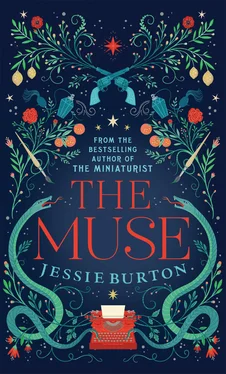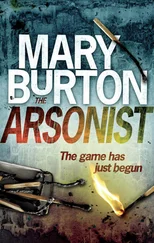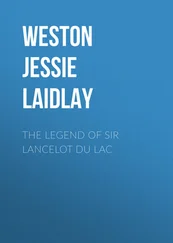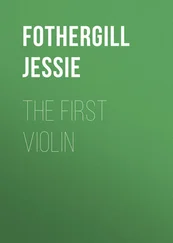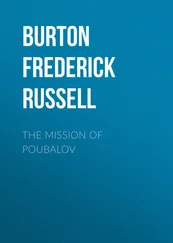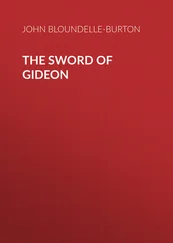Lawrie crossed his legs, his voice hard. ‘But you don’t know his works went up in flames. You can’t build an exhibition on a rumour. They’ll laugh at me.’
‘They won’t laugh. People love a rumour, Mr Scott. You can do more with rumour than you can with fact. And the fact is, we have a limited supply of paintings. Another fact: Harold Schloss did not have Rufina and the Lion when he went back to Paris. Where was it? That’s where you come in.’
‘Me?’ said Lawrie. Something in his tone of voice made me turn. I looked to Quick; she had clearly thought the same as Reede, for her eyes were on Lawrie, concentrating hard.
Reede came to sit opposite Lawrie, and spoke more gently. ‘I think that Harold Schloss realized it was untenable to remain in Spain, and in fleeing, the painting fell out of his possession, either through theft or carelessness. It is unusual for a dealer to confess so openly a loss, as he does in that letter. Normally they’re glib, smooth talkers. I think Harold Schloss came back to Paris with his feathers ruffled.’
‘And you think the painting was left behind in Spain?’ said Lawrie.
‘Well, Schloss doesn’t seem to have it. He’s got no reason to lie to his best collector. But I don’t know, Mr Scott. The next person to be attached to it was your mother. And apparently, we have no idea how she got hold of it.’
Lawrie gazed up at the painting, and down again, into the empty grate. ‘It’s always been on her walls,’ he said quietly. ‘I don’t remember a time it wasn’t there.’
‘So you say,’ Reede sighed. ‘Well, we can play with the question mark. I don’t think we have a choice. The survival of an artwork through the Spanish Civil War and a world war to a house in Surrey is not without its romantic possibilities.’
‘What do you think happened to Isaac Robles, in the end?’ asked Lawrie.
‘Mr Reede,’ said Quick, her voice hard and clear across the room. ‘What is the timescale for this? When are you planning to open this exhibition?’
Reede turned to her. ‘A delegation from the Guggenheim is coming in two weeks with the paintings. And two weeks after that, I believe we can open.’
Quick looked down at her diary. ‘Four weeks from now? That’s ridiculous. That’s no time at all.’
‘I know, Marjorie. But it’s what I want.’
I watched as Quick marked the day of November 28th in her diary, a slight tremor in her hand, the pen drawing across the page in a thick black cross.
That evening, Lawrie and I took the commuter train to Surrey. He told me that he’d already sold the MG. ‘I just didn’t use it much,’ he said, but he sounded wistful. I considered that perhaps there was more pressure than I initially imagined to sell his mother’s painting.
As we pulled out of Waterloo, me with the Xeroxes from Reede on my lap, I looked at the four paintings of Rufina and Justa by the older Spanish artists. I loved the passive lion in the Goya, but my favourite overall was the Velázquez; a young girl with dark hair and an inscrutable gaze, holding two little bowls and a plate in one upturned palm, and a huge plume in the other. Velázquez, like Robles, had painted Rufina on her own too. I moved on to the copy of Harold Schloss’s letter. Schloss had written by hand, and had started it neatly enough, but in places it became barely legible. His rounded arcs and sweeping curves descended into crossings-out and ink blots everywhere. I did not think it was the letter of a happy man.
‘We’re here,’ said Lawrie.
We were not normal passengers getting off at Baldock’s Ridge; the normal passengers were men in their late forties, paunch incoming, signet ring, Telegraph under their arm, an embossed briefcase. Women, country-tweeded, middle-aged with distant faces, thoughts buried deep within their handbags, coming back from a day in town.
‘After you left the meeting, Reede said he could try and sell the painting for me,’ Lawrie said as he opened the door and helped me down. ‘For a commission.’
‘How much does he think it will fetch?’
‘It’s hard to say. “ Art doesn’t always behave itself like other things you might put up for sale, Mr Scott ”,’ Lawrie said, parroting the pomposity Reede could stray into when on home turf. ‘He said it isn’t like a late Van Gogh coming onto the market.’
‘What does that mean?’
‘Well, apparently everyone would want one of those. But Rufina and the Lion is unique in a different way. Reede said he doesn’t want to underplay it, but neither does he want to over-egg the pudding. He said selling always has its risks.’
‘But he’s so enthusiastic about it.’
‘As a historian, maybe. As a personal preference, yes. But perhaps as an auctioneer he wants to manage my expectations. Not everyone’s going to like Isaac Robles.’
‘You could always donate it to a public institution.’
Lawrie laughed. ‘Odelle, I haven’t got any money.’
Quick and I had not had a chance to talk for the rest of the day. She had gone home shortly after the meeting with Lawrie and Reede was finished. She claimed a headache, but I knew of course it was more. I felt torn; I wanted to be with Lawrie, to revel in the rush and headiness of making up, of realizing how much a person means to you, the thrill of having nearly lost them only to be reunited. But at the same time, I was the only person who knew something was very wrong with Quick, that her pain seemed to be worsening, and yet I had no idea how to help her manage it.
‘Are you all right?’ said Lawrie.
‘Just thinking about Quick,’ I said. ‘She’s — not very well.’
‘She didn’t look very well.’
Lawrie leaned in to kiss my cheek as we walked down the station path. There was an intake of breath behind us. I turned; one of the tweed women, trying to look as if she hadn’t made the noise at all.
‘Come on,’ said Lawrie quietly. ‘Let me take you out of the eighteenth century.’
Except it wasn’t the eighteenth century, was it, Lawrie? It was late October, in 1967, in Baldock’s Ridge in Surrey, and you weren’t allowed to kiss me without comment. Or perhaps, more accurately, I was not allowed to be kissed.
When we got to the house, the lights were on. ‘Oh, Jesus,’ he said. I turned; Lawrie looked genuinely frightened.
‘What is it?’ I asked.
‘I thought Gerry wouldn’t be here. We should go.’
‘I don’t want to go,’ I said.
‘Odelle, Gerry isn’t — I don’t think he — I just want to warn you.’
‘Let me guess. I’m one of the natives.’
‘Oh, God, this is going to be a disaster. He’s — very old-fashioned.’
‘We should get along perfectly, then.’
‘You won’t. You shouldn’t have to—’
‘ Lawrie . I don’t want you to protect me. Let me be the judge of Gerry. Just as no doubt he’ll be the judge of me.’
*
How to describe Gerry? Gerry the Bastard, Gerry the Merry. As soon as he clapped eyes on me, his face lit up. ‘I thought Lawrence was a queer!’ The tone with which he said it made me think that Gerry was possibly inclined that way himself. I have never met a man like him since; that particular strain of upper-class English — so camp and Wodehousian, a madness at which no one bats an eye. Anything that was inappropriate to say, Gerry would say it. He was overweight, and handsome, but he looked like a man closing down on himself. I could smell the grief; six months down the line, you’d find him a puddle of skin on the floor.
‘I understand you work at an art gallery, Miss Baschin?’ he said, pouring yet another whisky.
Lawrie winced at Gerry’s mispronouncing my name, and I could see he was about to correct his step-father. ‘That’s right,’ I said quickly. ‘As a typist.’
Читать дальше
